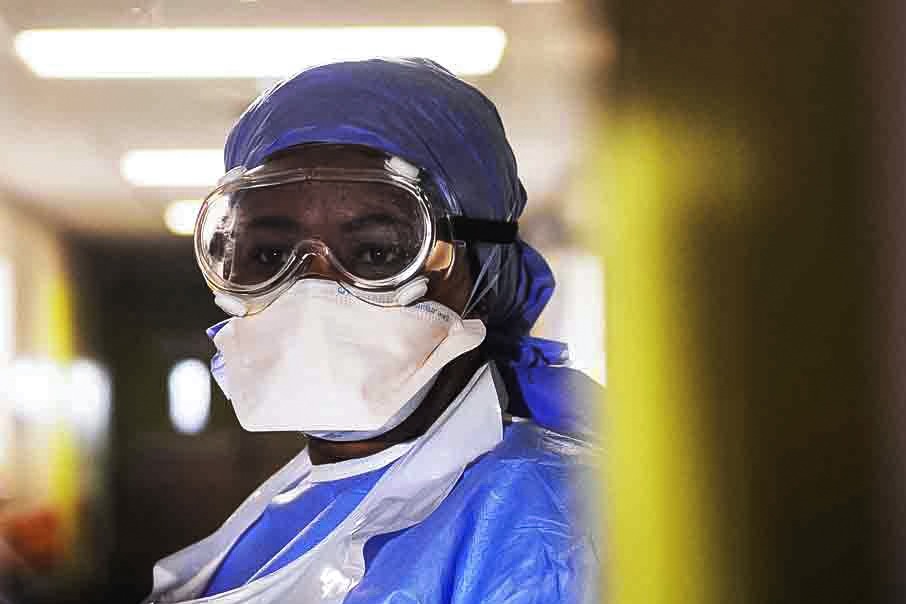
How could COVID-19 represent a benefit to HIV and tuberculosis fight in South Africa?
Tuberculosis and HIV each have more than double the mortality rate of COVID-19 in South Africa. The Lancet hypothesized that COVID-19 could benefit tuberculosis and HIV services.
The biological interactions between tuberculosis, HIV, and COVID-19, as well as health system factors, contribute to the impact of COVID-19 on vulnerable populations. More than 17 million people contracted COVID-19 worldwide. More than half a million have died of it. The Lancet issued a paper in which it is reported that modelling data show that COVID-19 could trigger an excess of 6 million tuberculosis deaths by 2025, with decreased diagnosis, treatment initiation, and successful treatment completion. The same, a 6-month disruption in antiretroviral therapy (ART) delivery for HIV could result in up to half a million additional deaths. As it is a mother-to-child transmission in sub-Saharan Africa over one year, this increases mortality by up to 40% over the next 5 years.
How COVID-19 is impacting in HIV and tuberculosis scenario in South Africa
Drug resistance, due to disrupted drug supplies could lead to amplifying the costs of managing these entrenched epidemics. Although modelling has limitations, COVID-19 will no doubt have a lasting negative impact on both diseases.
Nowadays, tuberculosis and HIV in South Africa has been managed successfully in the last 10 years. However, these gains are now threatened by COVID-19. South African Department of Health and Médecins Sans Frontières for two decades supported community-based against HIV and drug-resistant tuberculosis service delivery in the periurban township of Khayelitsha in the Western Cape, South Africa.
COVID-19 is now affecting Khayelitsha, which has one of the highest burdens of coronavirus in the Western Cape, which in turn accounts for more than half South Africa’s known cases. Disruptions caused by the emergency response highlight potentially unnecessary health system interactions between people with tuberculosis and people with HIV, including facility-based counselling, long clinic waiting times to receive medications, even for patients who are clinically well.
So, how COVID-19 measures could help to improve this situation?
The need to reduce clinic attendance to shield the vulnerable and reduce exposure to healthcare workers is also an opportunity to build home-based care, strengthen community and self-administered tuberculosis therapy, further decentralise medication pick-up, and extend ART and pre-exposure prophylaxis medication refills.
This situation presents an opportunity for positive, long-term, systematic change to transform inefficient, paternalistic policies and practices. For example, by providing clinical or counselling consultations via telephone in order to support patients while reducing contact for both the health-care providers and recipients.
Specifically, COVID-19 interventions could also enhance tuberculosis and HIV services. For example, community networks developed for COVID-19 screening could be repurposed to support tuberculosis and HIV. Identifying individuals who need additional support is one step to expand tuberculosis screening and HIV self-testing. The second step could be linking new cases or patients to follow-up to care.
Stigma reduction campaigns for COVID-19 could also embrace positive messages about HIV and tuberculosis.
Conversely, the COVID-19 pandemic has exposed systemic weaknesses, such as reduced medication supply and staff shortages. This will require dedicated health system strengthening and substantial investments to correct.
COVID-19 has also publicised the extreme economic vulnerability of individuals living with tuberculosis and HIV, and a commitment to mitigating the socioeconomic drivers and effects of both diseases must be maintained in the years to come.
Even if COVID-19 is an unexpected pandemic and devastated many countries beliefs, South Africa saw a strong and confident political reaction to it. This is revealing very important throughout the overview of other diseases.
EXPLORE
South Africa, President Ramaphosa’s speech to the nation. New measures about COVID-19
Cuba sends 200 medics and nurses to South Africa to face COVID-19
HIV evolving ‘into milder form’
Infection Prevention and Control in dialysis units. What do the IPC guidelines of the Government of India state?
The Lancet: the panel of a summary of the potential collateral benefits from the COVID-19 pandemic to tuberculosis and HIV services.


